
THE NAVIGATING CHANGE CATALOG IS HERE TO HELP YOU ENGAGE, PROVOKE, AND EDUCATE.
Navigating Change: The Podcast from Teibel Education

107: Be a Better Presenter with Gail Gregory
If you’re taking the stage as a presenter at the NACUBO 2015 Annual Meeting, you’re (hopefully!) well into preparing your presentation, rehearsing your slides, ensuring your jokes are funny, and timing what are sure to be copious applause breaks! But it’s never too late to learn from the greats, so this week on the show, Gail Gregory and Pete Wright are talking presentations, and offering insights that can help you turn your speech into a memorable NACUBO event!

106: Creativity at a Crossroads: the CAO/CBO Partnership at University of Colorado
Faced with declines in state funding leading the nation, University of Colorado has been forced to develop innovative solutions that allow the institution to maintain its position as a leading research institution, while maintaining affordability for its students. Doing so has required a best in class partnership between Senior Vice Chancellor and CFO, Kelly Fox, and Provost and Executive Vice Chancellor for Academic Affairs, Russell Moore.
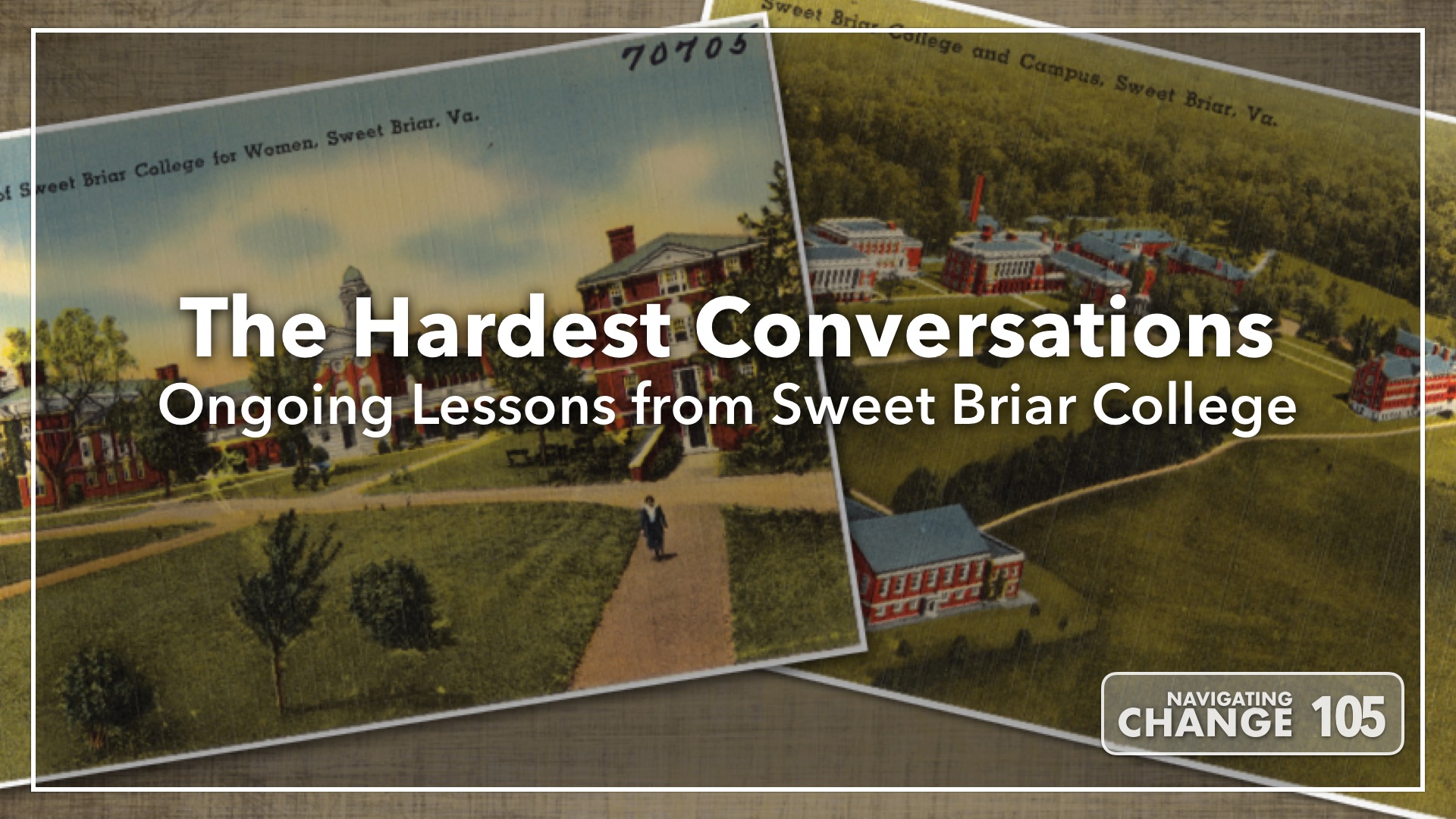
105: The Hardest Conversations—Ongoing Lessons from Sweet Briar College
This week on the show, Howard Teibel and Pete Wright reflect on Sweet Briar, and the questions and challenges that arise from their move to close after this academic year.

104: Shared Services as a Tool for Change
This week on Navigating Change, Howard Teibel and Pete Wright offer insights and experience in moving toward a shared services model from the administrative and faculty perspectives. It’s a conversation on the wide ranging implications of shared services from better hiring, greater cost management, and building strength in capturing and using data more efficiently.

103: Empowering Teams to Take Initiative
How do you lead from behind and mentor others to step forward? This week, Howard Teibel and Andrew Menke discuss strategies behind empowering teams to take initiative.
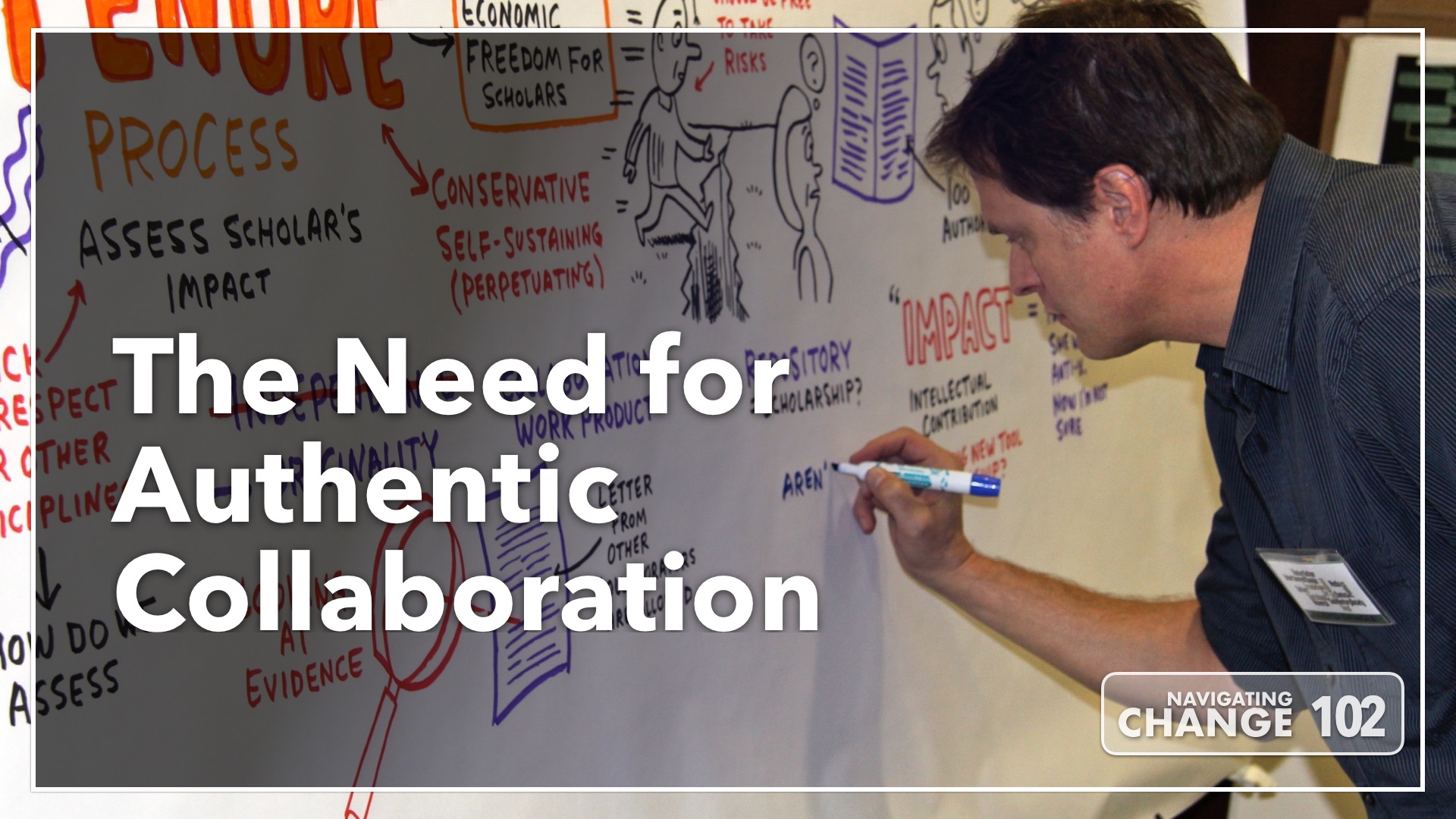
102: The Need for Authentic Collaboration
This week on the show, Howard Teibel and Pete Wright offer suggestions and observations to help institutions break down barriers and move toward significant and authentic shared governance across the institution.

101: The Danger of Thinking in Projects
This week, Howard Teibel and Pete Wright discuss the importance of making the leap from “project thinking” to framing change around transformation, dodging the stagnation that comes with the return to business as usual, once change projects close.
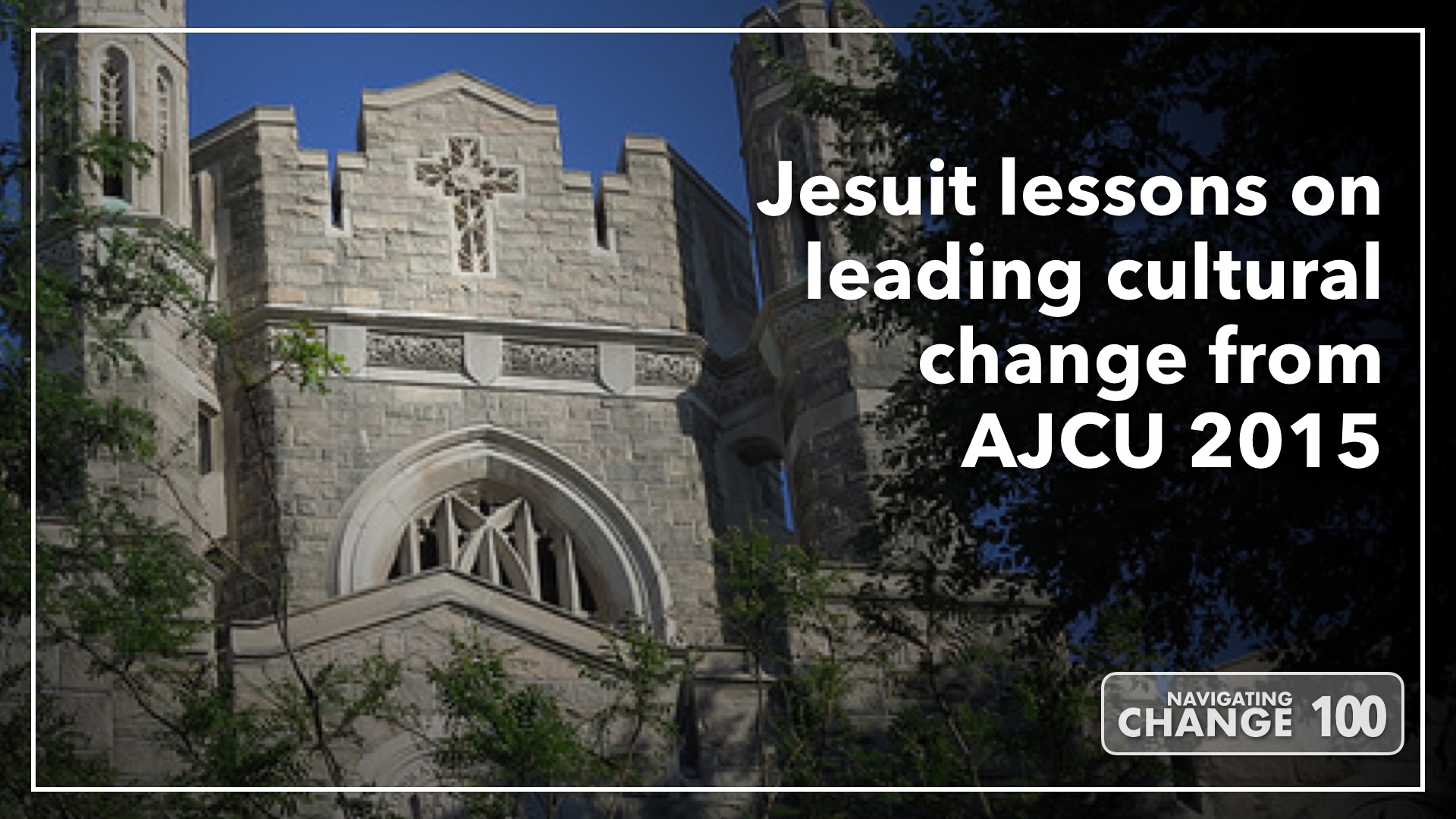
100: Jesuit lessons on leading cultural change from AJCU 2015
You've heard us talk about this project before on the podcast in our series on Loyola's work. This week, we're looking back on the project as Howard and the Loyola leadership team take the stage to present the results of their work and the ongoing transformation they're seeing at the institution.

99: Lessons from AGB's National Conference on Trusteeship
Recorded straight off stage from the 2015 AGB National Conference on Trusteeship, Howard Teibel shares his reflections on trusteeship, and lessons he learned working with trustees navigating their most challenging issues. From the coming closure of Sweet Briar to the challenges of institutionalizing change, Howard and Pete dive into the importance of changing our thinking from cooperation to collaboration and shifting adversarial relationships toward finding alignment across the entire institution.

98: What are Presidents, Chancellors, and Cabinets Dealing with Today?
As we cruise toward our centennial episode of Navigating Change, we’re stepping back to share some of our key lessons learned. We’ve heard from presidents, chancellors, and trustees as they navigate their institutions though the rough seas of higher education, from the funding challenges facing the large publics to the demand challenges of community colleges, the value challenges of the smaller liberal arts colleges to the credibility challenges of the for profits.

97: Dr. Larry Baker Brings Communication, Humor to Trusteeship at Des Moines University Medical Center
This week on Navigating Change, we continue our conversation on governance with trustee Larry Baker. Dr. Baker serves as medical director for the emergency department of UnityPoint health in Des Moines, but for our conversation today, his most important role is as trustee, serving as chair on the board of Des Moines University Osteopathic Medical Center.

96: Uncovering the Best Place to Work with Ron Friedman, PhD
The challenge and complexity around audacious change projects continues to grow in our institutions. This week on the show, we take on the impact of culture and environment on our ability to drive complex change projects.
Ron Friedman is an award-winning psychologist and author of “The Best Place to Work,” a book that offers a view of the latest research in management, motivation, behavior and beyond, to illuminate what really makes us successful on the job.
We’ve invited Ron to join us for a conversation around the design of workplaces that cultivate engagement and creativity and, as an academic himself, to share his insights into what education can learn and apply toward a stronger work environment that is ready to embrace change.
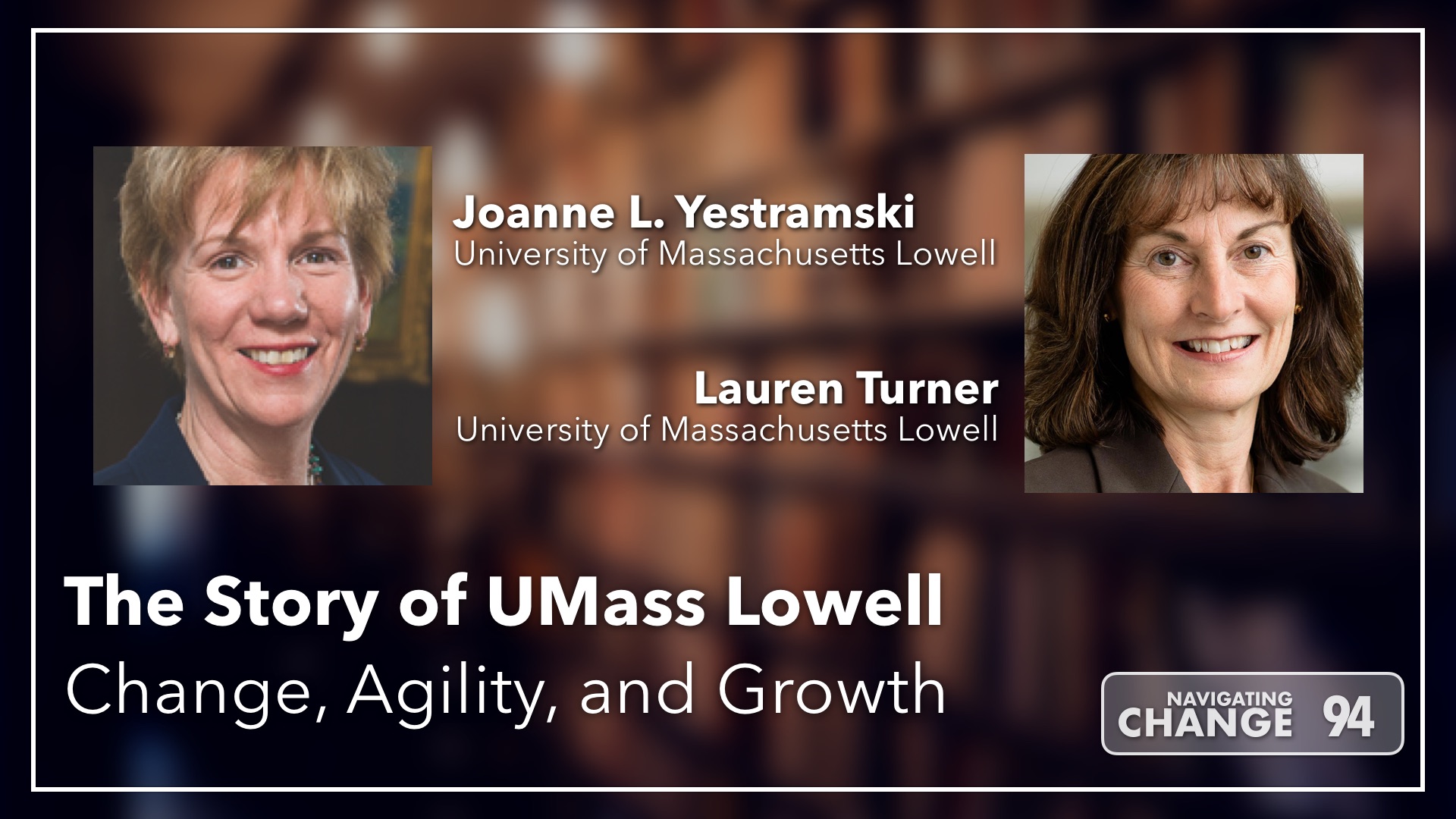
94: The Story of UMass Lowell — Change, Agility, and Growth with Joanne Yestramski & Lauren Turner
Today on the show, we’re going to discuss that project with our special guests from UML, Joanne Yestramski and Lauren Turner. We’ll focus on this work in the context of the institution’s success in cementing a culture of organizational agility in this challenging education market.
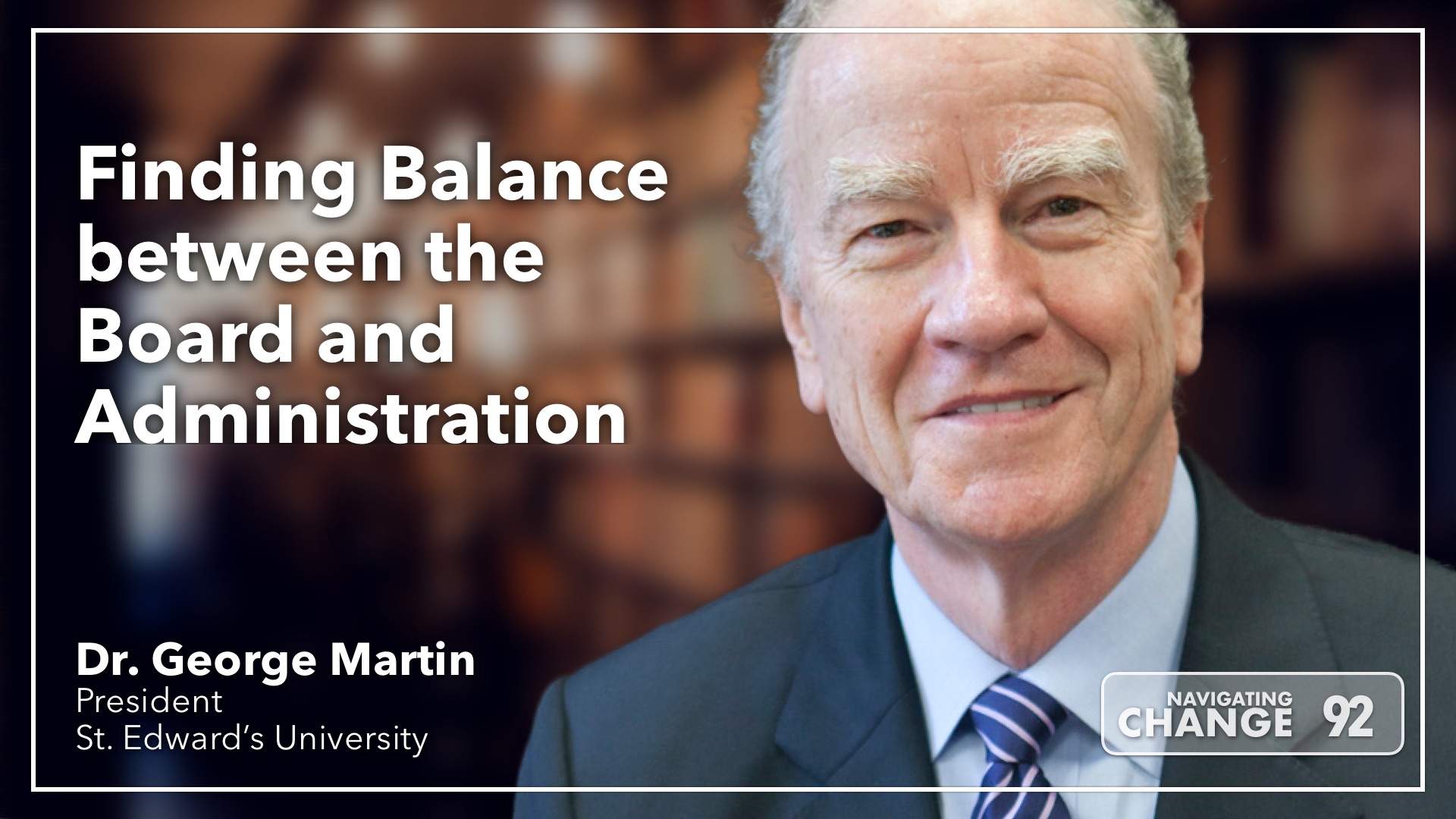
92: Governance — Finding Balance Between the Board and Administration with St. Edward’s President George Martin
This week on Navigating Change, Howard Teibel and Pete Wright investigate the careful balance between the board and the president in protecting, growing their institutions.
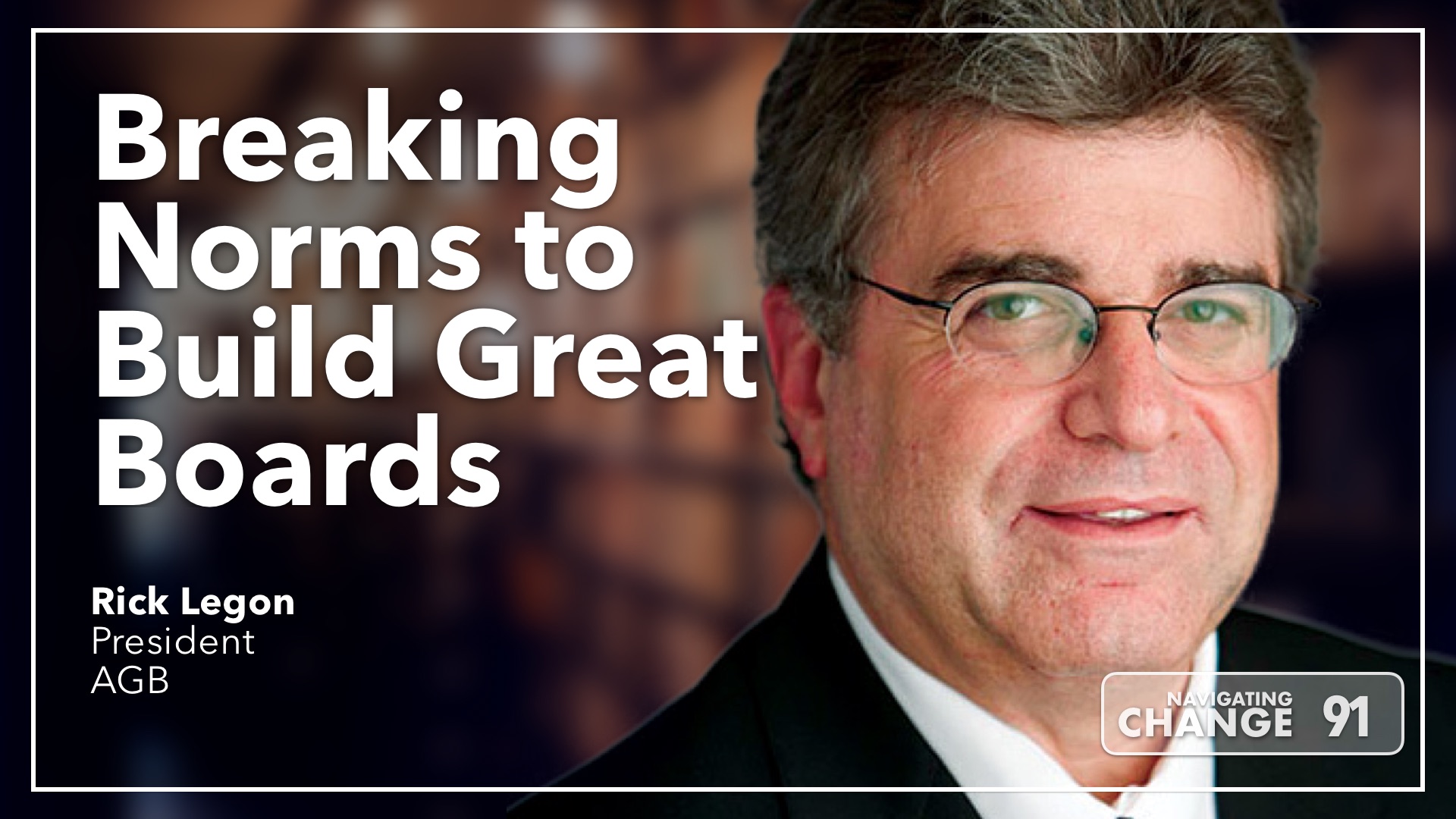
91: Governance — AGB President Rick Legon on Breaking Norms to Build Great Boards
This week on the show, Howard Teibel and Rick Legon discuss the challenges in fostering strong board leadership to help institutions face their collective crises ahead.

90: Governance — Leadership, Strategy, & Creativity at the Top
Today we begin a series exploring governance in higher education from the perspective of leaders across the institution. In a series of conversations with trustees, presidents, faculty and beyond, Howard Teibel and Pete Wright host a dialog around authority, accountability, and responsibility for leadership.
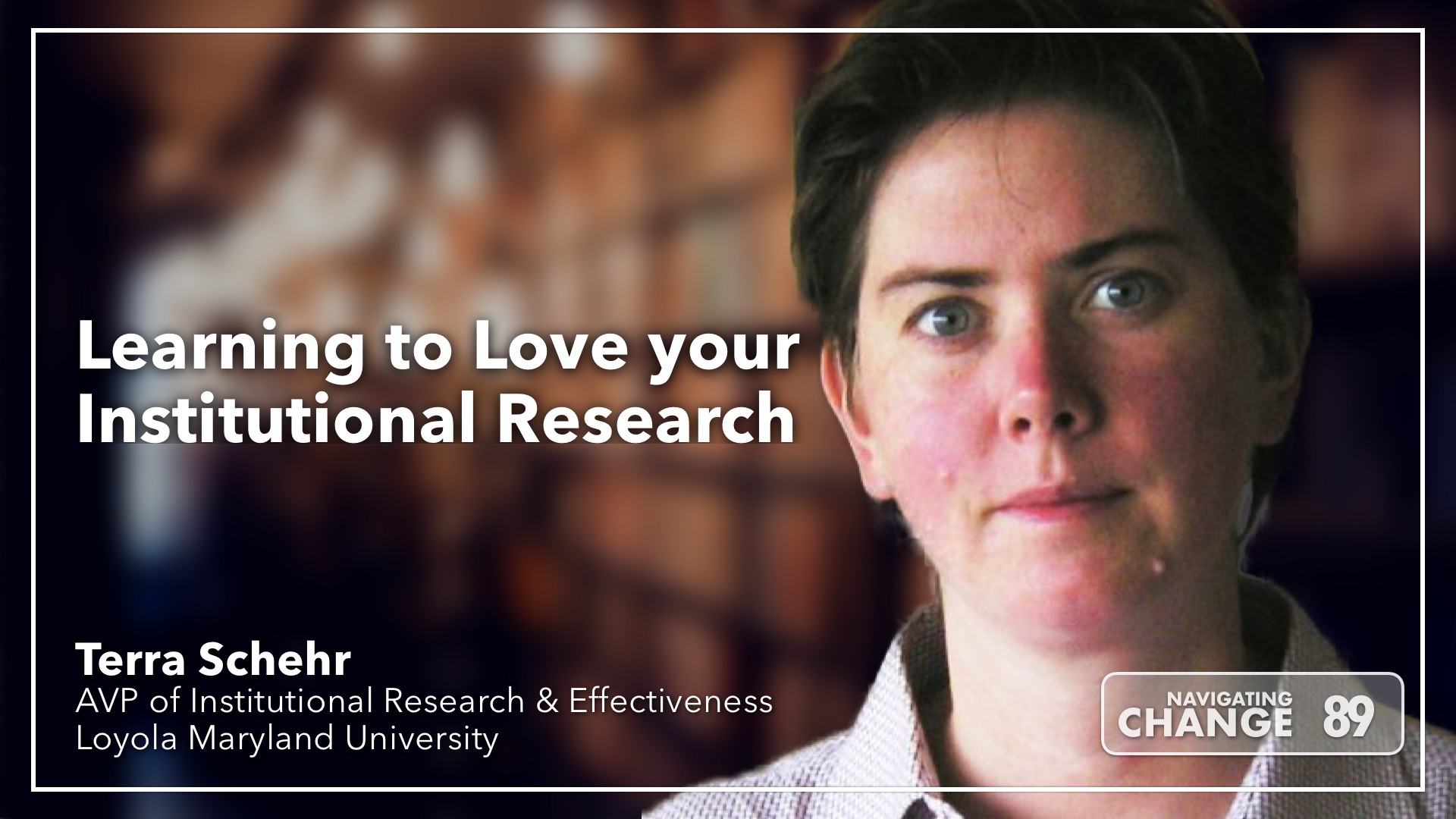
89: Datapoints — Learning to Love your Institutional Research with Loyola's Terra Schehr
Today on the show, we welcome Terra Schehr, Assistant Vice President of Institutional Research and Effectiveness at Loyola University Maryland. Terra shares her experience leading the IR team in demonstrating and serving the institution through data.
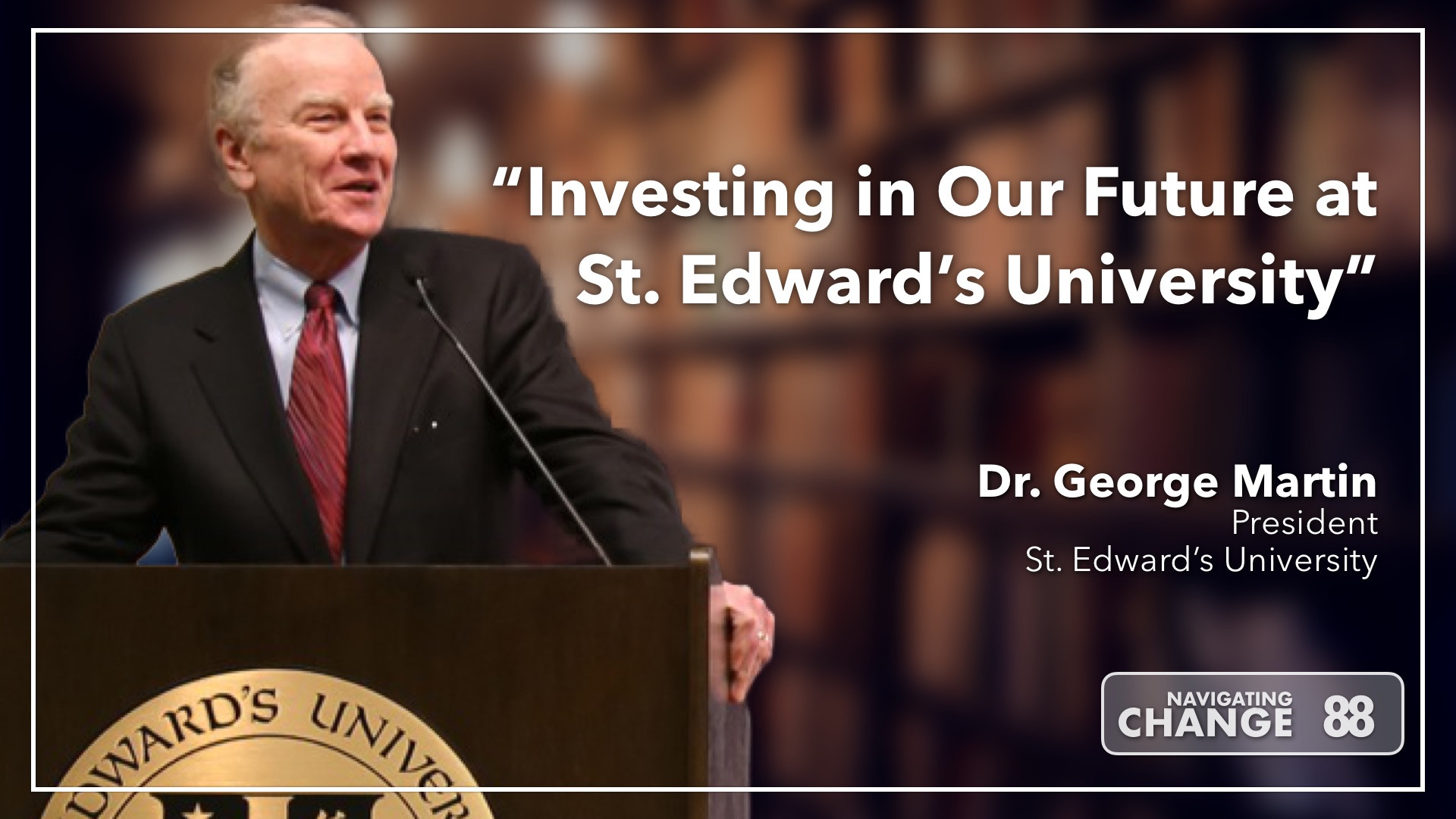
88: President George Martin on Investing in Our Future at St. Edward’s University
This week on Navigating Change, Dr. Martin shares his experience in cultivating top-down and bottom-up decision making that positively engages the entire university community. He outlines is rationale behind embarking on such an audacious change project now, and what success will mean to the finance office — and the culture — of St. Edward’s in the future.

86: AGB President Rick Legon on Board Leadership, Adaptability in the Face of Tectonic Change in Higher Ed
This week, Rick Legon shares his keen insights in the challenges facing board leadership in today’s institutions, and how the Conference on Trusteeship serves to align leaders to face them.
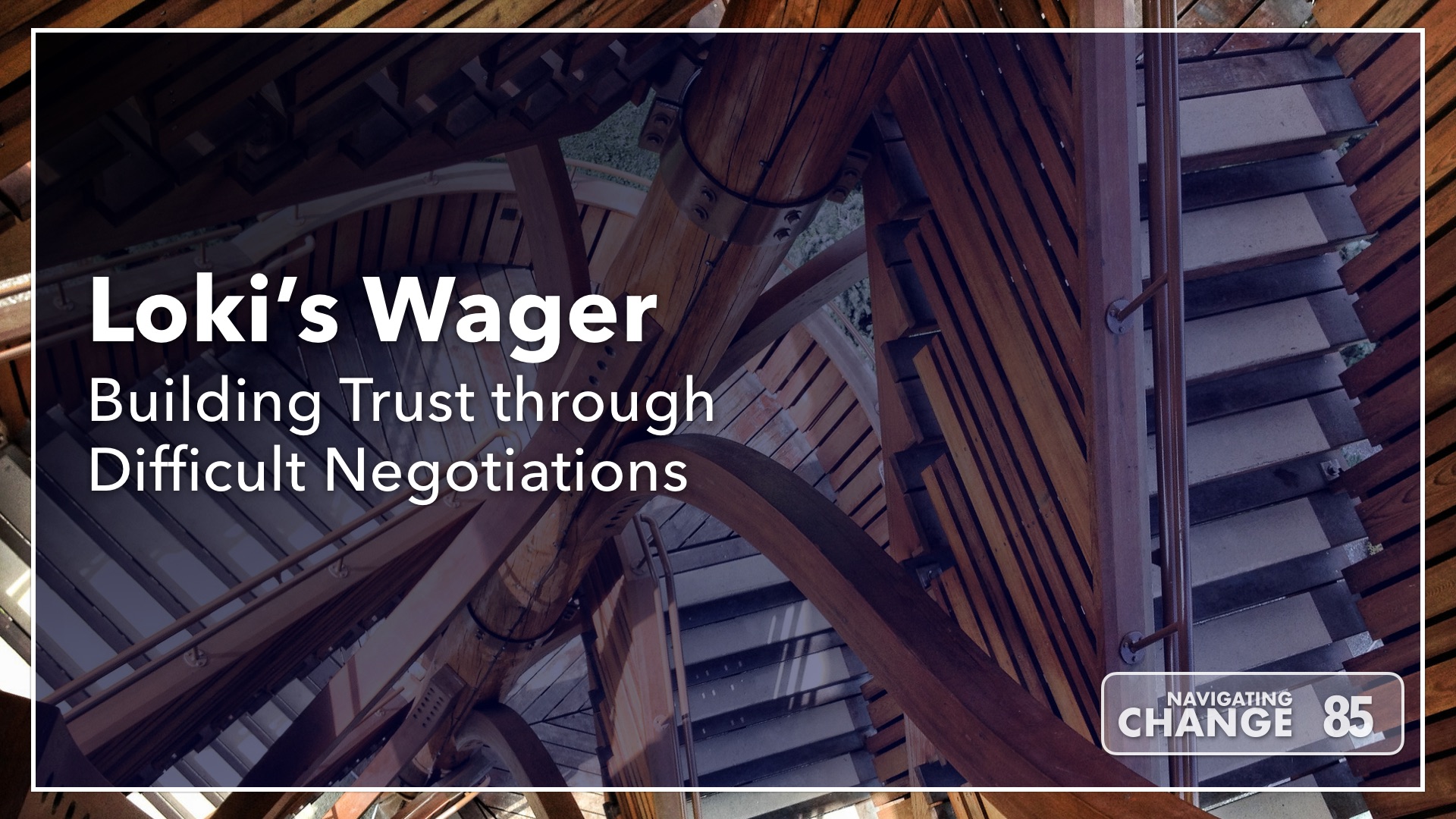
85: Loki's Wager — Building Trust through Difficult Negotiations
This week on Navigating Change, Howard Teibel and Pete Wright discuss Loki’s Wager, and share insight that can help to adjust our natural assumptions around conflict, trust, and the ground rules required for an effective problem-solving and decision-making engine at the negotiating table.







